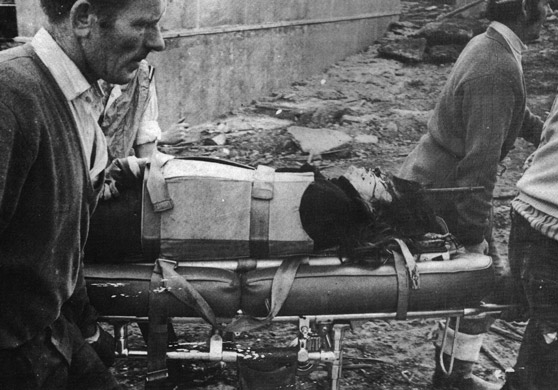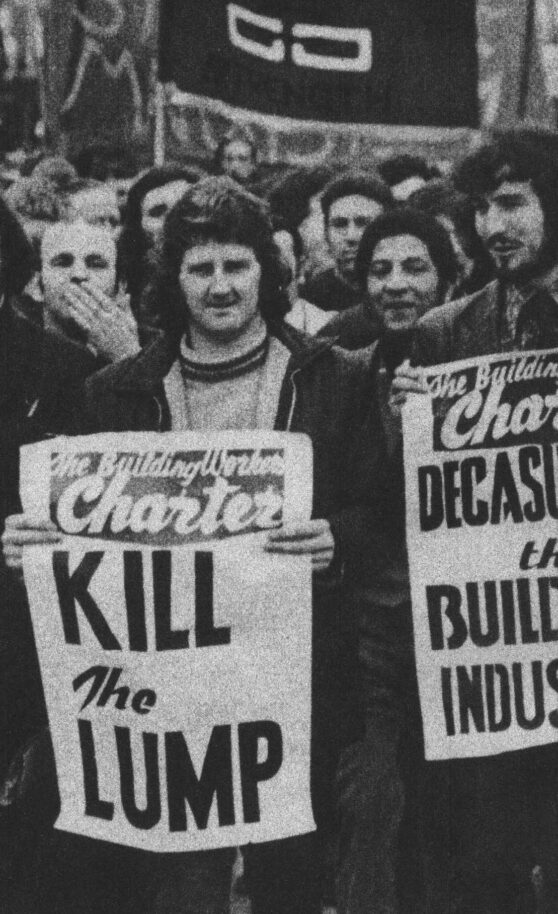Working conditions on building sites were second only to coal mines for fatalities and serious injuries. Basic facilities which people took for granted in factories, offices and shops were scarce or non-existent: toilets, washbasins, canteens, and lockers.
McAlpines looked after their horses better than the workers on their sites
Alan Abrahams, UCATT official, 1973
Building sites were temporary. When the job was finished workers moved to another site and trade union organisation had to start all over again. Good trade union activists were quickly blacklisted and found that they could not find work. The employers funded a secret organisation, the Economic League, to maintain the blacklist. One of the main contributors to the fund were the building trade employers. Although the Economic League was exposed and disbanded the Consulting Association replaced it and the practice of blacklisting continues to this day.

Another feature of the construction industry that undermined the ability of trade unions to organise workers was the government’s policy for building workers to pay income tax. Employers were given tax concessions to allow them to promote “the lump”. This was the practice where workers were no longer seen as employees, whose income tax and National Insurance was deducted from wages and paid to the Inland Revenue. Instead a worker would be regarded as “self-employed” and paid a lump sum of money for the work that they did each day or week, hence “working on the lump”. The individual worker would be responsible for paying tax and NI, not the employer.
In reality, many workers were trading off working conditions and health and safety on sites for higher pay. Many employers refused to take on direct labour, as they knew that many of them would be trade unionists who would use collective bargaining to improve pay and conditions. The national minimum rate for the building trade in those days was just £20 for a skilled worker and £17 for labourers, for a 40-hour week.
This was the backdrop to the national strike in 1972.
